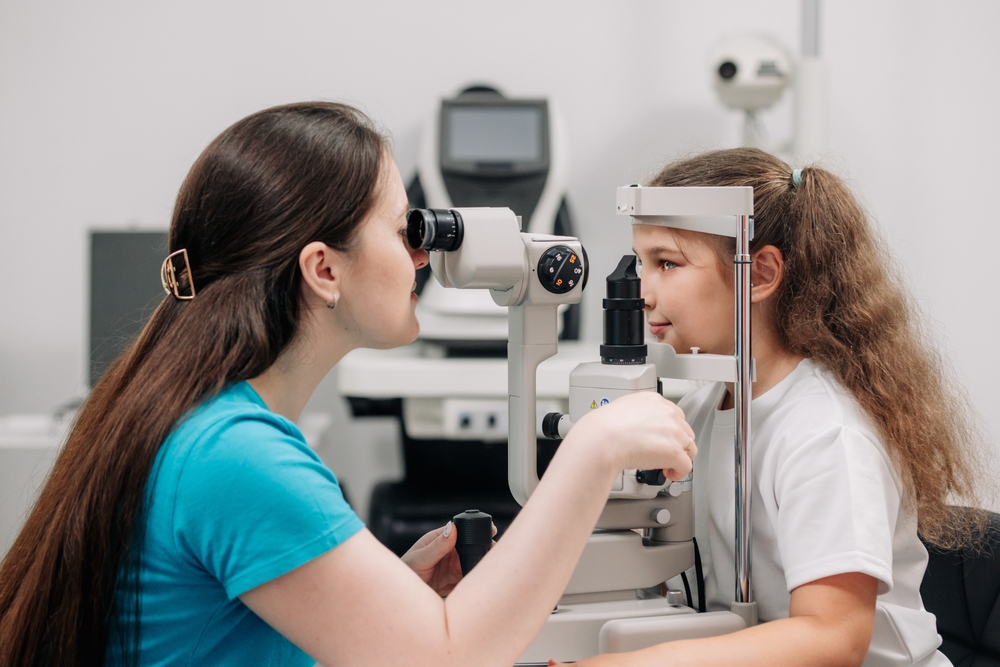
How Often Should You Have a Comprehensive Eye Exam? Guidelines for Every Age Group
Taking care of your eyes is essential at every stage of life. While it’s easy to think that eye exams are only necessary when experiencing vision problems, regular check-ups are actually crucial for catching and preventing various eye conditions early.
Why Regular Eye Exams Are Important
Routine eye exams help detect early signs of eye diseases, such as glaucoma, cataracts, and macular degeneration, even before noticeable symptoms arise. Additionally, eye exams can reveal other health conditions like diabetes, hypertension, and high cholesterol. Regular eye exams are especially important for children, seniors, and individuals with specific vision needs.
Infants and Toddlers (0–2 Years)
For children under two, it’s recommended to have their first eye exam around six months of age. During this exam, the optometrist will check for visual development, eye alignment, and potential signs of eye conditions.
Guideline: One exam at six months, unless any issues are detected.
Preschoolers (3–5 Years)
As children grow, their vision plays a critical role in learning and development. Around age three, they should have a comprehensive eye exam to ensure their visual skills are developing normally. Conditions like amblyopia (lazy eye) and strabismus (crossed eyes) are often detected in this age range.
Guideline: One exam between ages 3–5, with more frequent exams if vision issues are present.
School-Aged Children (6–17 Years)
Since children rely heavily on their vision for school activities, yearly eye exams are recommended. Myopia (nearsightedness) is a common issue that can worsen over time if not properly managed. Early detection can lead to more effective treatments, such as glasses, contact lenses, or even myopia management options.
Guideline: Annual exams to monitor and manage any vision changes or eye health issues.
Adults (18–39 Years)
For young adults without known vision problems, it’s generally safe to schedule an eye exam every two years. However, if you use glasses or contact lenses or have a family history of eye disease, an annual eye exam is advisable. Eye strain from digital devices is increasingly common, so regular check-ups are helpful for those with prolonged screen exposure.
Guideline: Annual exams, depending on vision needs and risk factors.
Adults (40–64 Years)
Vision changes are common in this age range, often including presbyopia (difficulty focusing on close objects). It’s also a key time to watch for early signs of eye diseases like glaucoma and macular degeneration. After age 40, eye exams should become an annual priority, especially for those with diabetes, high blood pressure, or a family history of eye disease.
Guideline: Annual exams to manage age-related changes and screen for eye diseases.
Seniors (65+ Years)
As we age, the risk of cataracts, glaucoma, and macular degeneration increases. Comprehensive eye exams become essential for maintaining eye health and quality of life. Annual exams are crucial for detecting age-related eye diseases early and preventing vision loss.
Guideline: Annual exams, or more often if diagnosed with an eye condition.
Special Cases: When to Schedule More Frequent Eye Exams
For some individuals, more frequent eye exams may be necessary:
• Diabetics: At least once a year, as diabetes increases the risk of diabetic retinopathy.
• Family History of Eye Disease: Increased risk may warrant more frequent exams.
• Contact Lens Wearers: Annual exams are recommended to ensure eye health and proper fit.
• Frequent Digital Device Users: Regular check-ups can help address digital eye strain and provide helpful advice on managing screen time.
Schedule Your Next Eye Exam with Advanced Eyecare Central Coast Today
Regular comprehensive eye exams are essential for maintaining optimal vision and eye health throughout your life. Each stage of life presents unique eye care needs, from early childhood development to the management of age-related changes. By staying proactive with your eye exams, you not only ensure clear vision but also allow for the early detection and treatment of potential eye diseases, preserving your quality of life.
Reach out to Advanced Eyecare Central Coast for personalized eye care for every stage of life. Visit our office in Pismo Beach, California, or call (805) 773-6000 to schedule an eye exam today.










